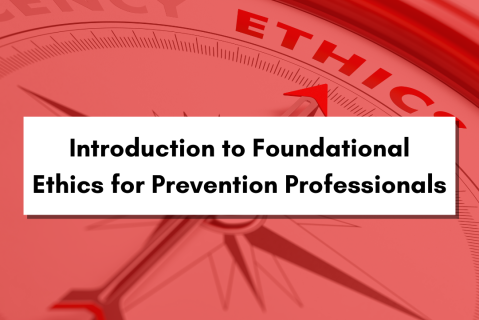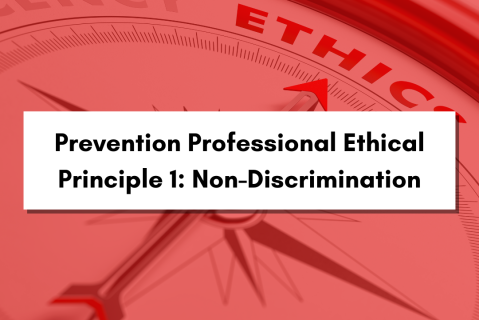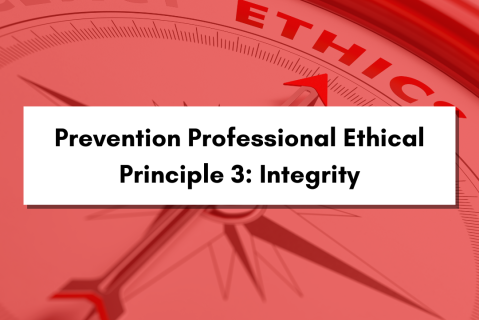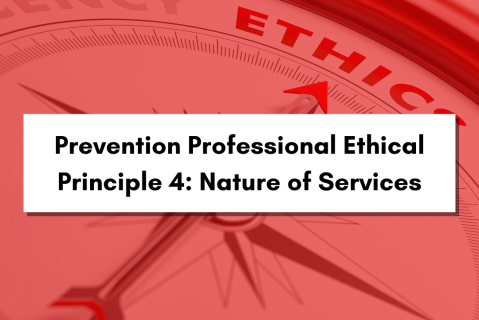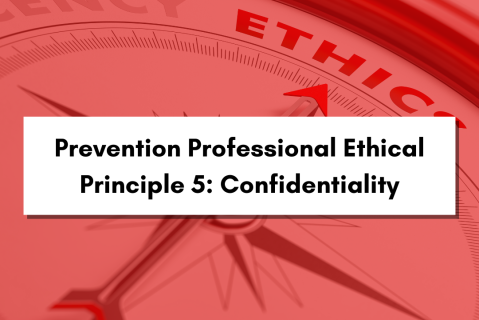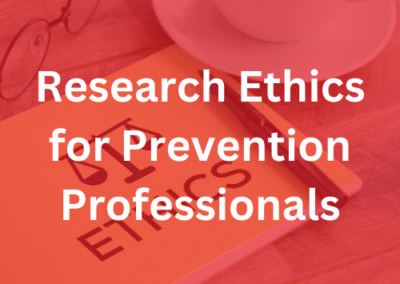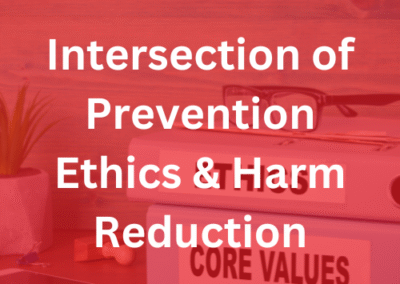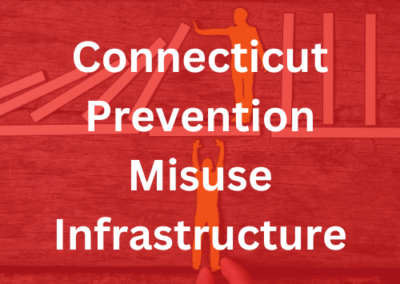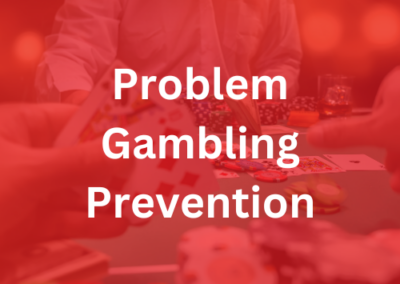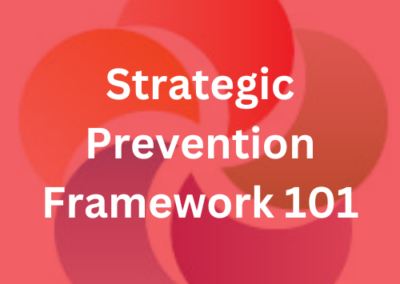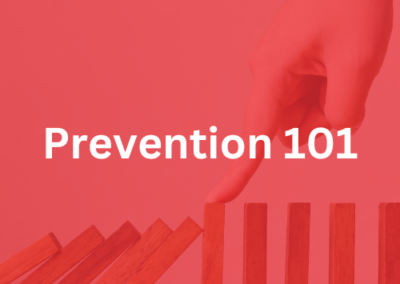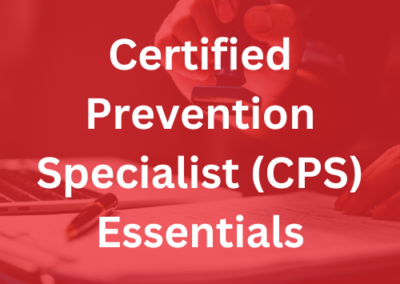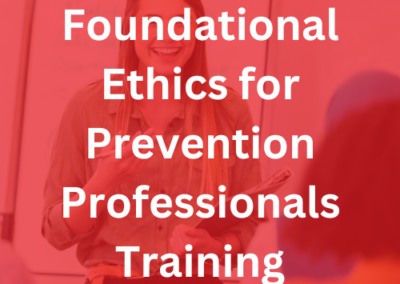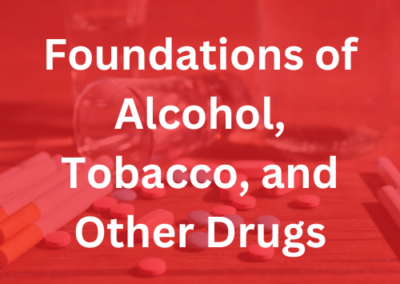Overview
The Foundational Ethics for Prevention Professionals Training Course is structured to cover key ethical principles that guide effective and responsible practice. Through a series of detailed lessons, participants will gain a deeper appreciation of ethical standards and how they apply to prevention work.
Each lesson includes a learning module followed by a knowledge check to reinforce your understanding. Completing each lesson will earn you 0.25 Continuing Education Units (CEUs).
Course Highlights
Introduction to Ethics for Prevention Professionals
Gain a foundational understanding of the role ethics play in prevention work and why adhering to ethical standards is crucial for maintaining professionalism and effectiveness in the field.
Principle 1: Non-Discrimination
Learn about the importance of providing fair and equitable treatment to all individuals, regardless of their background or personal circumstances, and how to apply non-discriminatory practices in your work.
Principle 2: Competency
Understand the necessity of maintaining professional competency through continuous education and skill development. This lesson emphasizes the importance of being well-informed and qualified to deliver effective prevention services.
Principle 3: Integrity
Explore the principle of integrity in professional practice, including maintaining honesty, transparency, and ethical behavior in all interactions and decisions.
Principle 4: Nature of Services
Delve into the ethical considerations related to the nature of the services provided, ensuring that services are delivered with respect for the dignity and autonomy of clients.
Principle 5: Confidentiality
Examine the critical importance of maintaining client confidentiality and the appropriate handling of sensitive information to protect client privacy and build trust.
Principle 6: Ethical Obligations for Community and Society Reflect on the broader ethical responsibilities that professionals have towards the community and society, including advocating for ethical practices and contributing to positive social change.
Course Objectives
- Understand Ethical Principles
Demonstrate a comprehensive understanding of the core ethical principles that guide prevention professionals, including non-discrimination, competency, integrity, and confidentiality. - Apply Ethical Standards
Apply ethical standards to real-world scenarios in prevention work, ensuring that practice aligns with principles of fairness, respect, and professional conduct. - Commit to Ongoing Professional Development
Embrace a commitment to ongoing professional development, engaging in continued education and self-assessment to uphold ethical standards and improve practice.
7 Lessons
7 Knowledge Checks
1.75 Continuing Education Units
Check out the Included Lessons
Each lesson is designed to provide practical insights and actionable guidance, ensuring that you are well-equipped to uphold ethical standards in your prevention practice. Enroll in the Foundational Ethics for Prevention Professionals Training Course today to strengthen your understanding of ethical practices and advance your career in prevention.
More Related Courses
- All
- Certified Prevention Specialist (CPS) Essentials
- Connecticut Prevention Misuse Infrastructure
- Coordinator's Guide to YPA Onboarding
- Foundational Ethics for Prevention Professionals Training
- Foundations of Alcohol, Tobacco, and Other Drugs
- Fundamentals of Meeting Management
- Prevention 101
- Problem Gambling Prevention
- Research Ethics for Prevention Professionals
- Strategic Prevention Framework 101
- The Intersection of Prevention Ethics and Harm Reduction

